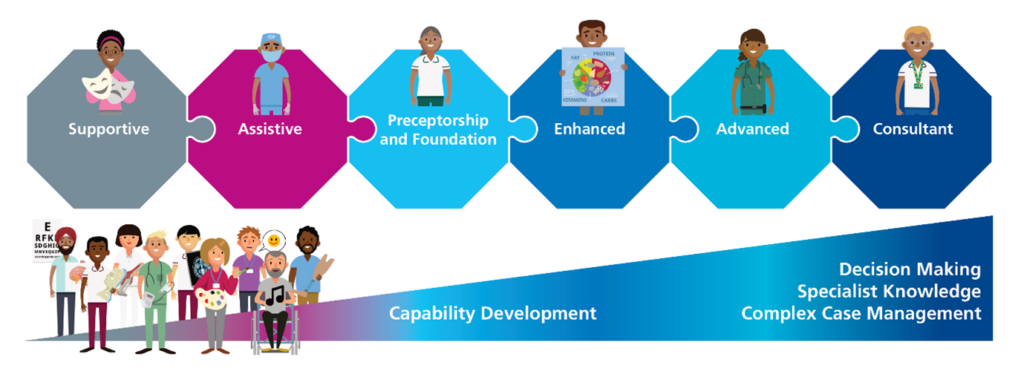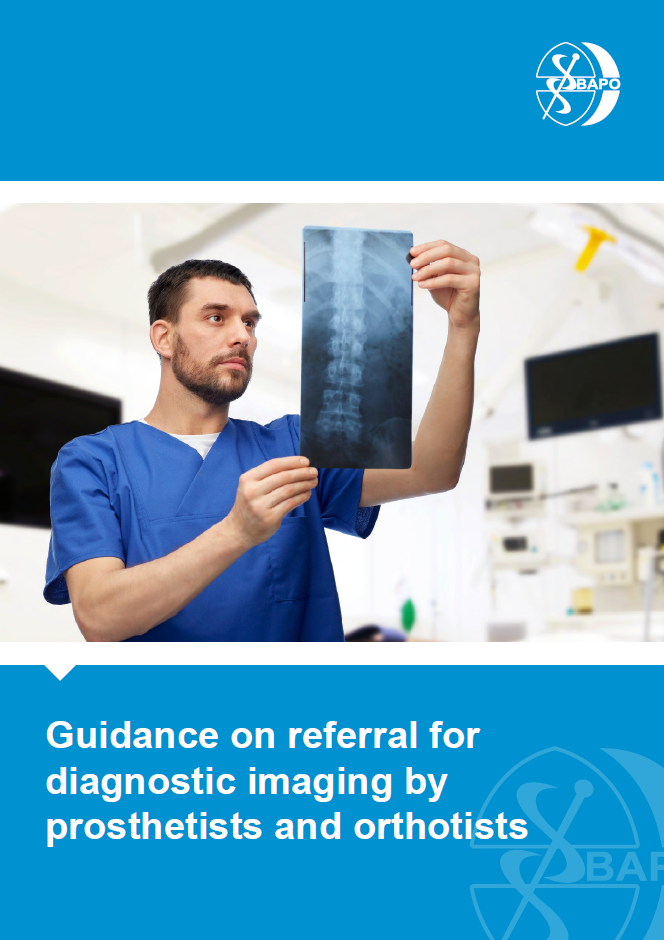
Resources

Frequently Asked Questions (FAQs)
Enhanced and advanced practice are different levels of professional practice. At each level of professional practice, a health and care professional’s ability to handle complexity and risk increases.
At an enhanced level of practice, practitioners will have additional knowledge and skills in a field of expertise. They will manage discrete aspects of a patient’s care, often particular to specific conditions and groups of patients.
At an advanced level of practice practitioners will have developed their knowledge, skills and expertise in their area of practice even further. They will be able to manage the whole episode of a patient’s care from the time they first present, through to the end of the episode.
More information on the difference between enhanced and advanced practice can be found in the employer’s guide to the Enhanced Clinical Practitioner apprenticeship.
Completing the Enhanced Clinical Practitioner apprenticeship or other pathways into enhanced practice might be one step on a career journey to advanced practice, or enhanced practice could be a fulling career destination in its own right.
Advanced practice education and training is different from the Enhanced Clinical Practitioner apprenticeship or other pathways into enhanced practice. To become an advanced practitioner, prosthetists and orthotists would need to be appointed to a trainee advanced practitioner position. They would then complete a Master’s degree in advanced practice which is normally three years in duration and includes both academic content and supervised clinical practice in the workplace. More information about advanced practice is available here.
Someone who has completed the Enhanced Clinical Practitioner apprenticeship at level 7, or other relevant Master’s level qualifications, might ask an education provider delivering the Master’s in advanced practice to give them some credit for their previous study through Accredited Prior (Experiential) Learning (AP(E)L) which might reduce the duration and content. This will, however, be a case-by-case decision for the education provider based on their own requirements for recognising prior experience and learning.
NHS England has published an enhanced level practice schema and indicative curriculum for prosthetics and orthotics.
The schema is aimed primarily at education and training providers and its purpose is to help support the design and delivery of postgraduate education and training for enhanced level practice – both apprenticeship and non-apprenticeship pathways.
The schema includes descriptors for enhanced level practice in prosthetics and orthotics across different care pathways. These can help employers and prosthetists and orthotists understand what enhanced practice looks like in the profession.
Prosthetists and Orthotists
Enhanced practice is a level of professional practice which already exists in prosthetics and orthotics. It is not a job role, title or salary band. Although the published standard for the apprenticeship uses the title ‘Enhanced Clinical Practitioner’, this is not a title that is or will be used in practice.
There are different pathways for prosthetists and orthotists to practise at an enhanced level. This includes post-registration and postgraduate qualifications and courses together with significant relevant experience. As an additional pathway, there are now apprenticeship programmes which prepare prosthetists and orthotists to practise at this level.
Prosthetists and orthotists wanting to develop at an enhanced level of practice should speak to their employers to discuss their career aspirations and how they can best be supported.
No.
The Enhanced Clinical Practitioner apprenticeship is one additional, structured pathway for enhanced practice. It is likely to be most suitable for those who are newly promoted, or working towards a job role (normally at Band 6) that requires them to develop the complex knowledge and expertise required to handle more complex patient presentations.
There are other pathways into enhanced practice roles which include completion of post-registration and/or postgraduate qualifications or courses together with significant relevant experience. Prosthetists and orthotists should discuss with their employers which career development pathways might be available and suitable for them.
Maybe.
The Enhanced Clinical Practitioner apprenticeship is most suitable for prosthetists and orthotists who are newly promoted or who are working towards a job role (normally at band 6) that requires them to develop the complex knowledge and expertise required to handle more complex patient presentations.
For some prosthetists and orthotists who are already practising at enhanced level, the apprenticeship might not be necessary or helpful because it would not provide them with significant additional skills and knowledge. They may have already completed post-registration education and training and have significant experience and knowledge.
Good career conversations with employers will help prosthetists and orthotists identify whether the apprenticeship might be right for them, or alternatively, whether other career development opportunities including other qualifications or CPD will be more relevant.
Employers
An employer with a payroll over £3m will pay the apprenticeship levy and will be able to use these funds to pay for employees to undertake the apprenticeship.
An employer with a payroll under £3m will not pay the apprenticeship levy. There are other options that these employers can use to pay for employees to complete apprenticeships:
Levy transfer. Subject to certain limits, levy-paying employers can transfer a percentage of their apprenticeship funds to other employers. This might be an option to explore for non-levy paying employers who are delivering services under contract to a levy-paying NHS Trust.
Co-investment. Employers are usually eligible for government funding that will cover at least 95% of the cost of an apprenticeship course. Employers pay a co-investment of 5% direct to the education provider.
Apprenticeship funding arrangements may change. More information about current options is available here.
Employers will need to cover the costs of:
Employing the apprentice staff member
Supporting the apprentice’s workplace learning
Any costs attached to releasing apprentices to undertake their off-the-job learning.
Apprenticeships are a partnership between an apprentice, their employer and an education provider.
Employers need to provide clinical governance, help supervise and develop the apprentice’s clinical skills and provide time and support for their off-the-job learning.
All apprenticeships comprise a mix of learning within an apprentice’s job role and off-the-job learning. The minimum amount of off-the-job learning is 20% of an apprentice’s working week (or one day per week based on a five day working week). There is flexibility in how the off-the job learning is delivered – for example, it could be one day a week or on a more consolidated ‘block release basis’. Apprenticeship programmes often make use of online learning, which increases flexibility.
Employers interested in investing in their employees to complete the apprenticeship should discuss with education providers how they might be able to help. There is a list of education providers delivering enhanced clinical practitioner apprenticeship programmes here.